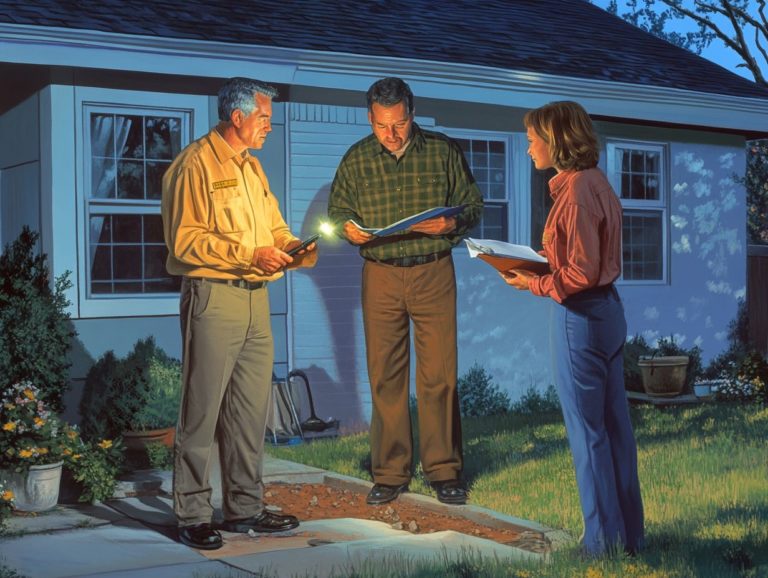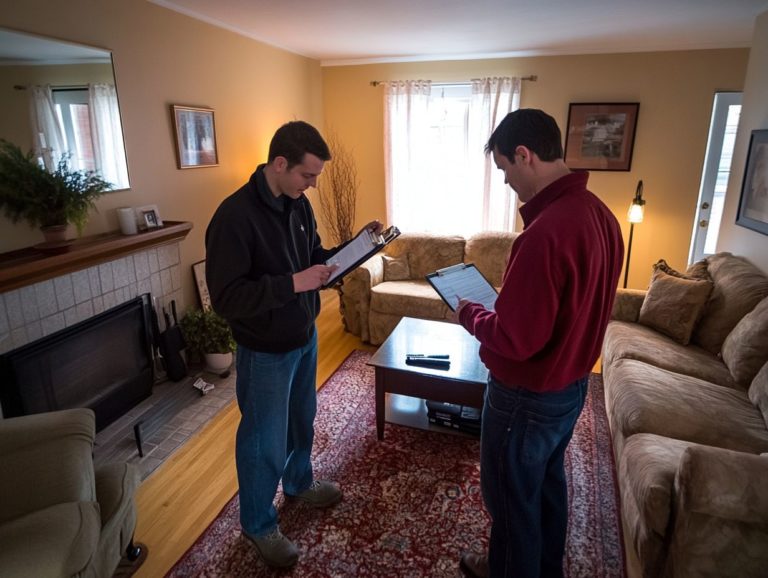How to Prepare for a Successful Home Inspection
A home inspection is an essential step in your buying or selling journey, offering valuable insights into the condition of a property.
Grasping its purpose empowers you to make informed decisions along the way. This guide will walk you through the inspection process, from preparing your home and familiarizing yourself with the areas typically examined to effectively addressing any issues that may surface.
You ll also discover how to leverage the inspection report to enhance your investment. Immerse yourself in this information to ensure your home inspection is a resounding success!
Contents
- Key Takeaways:
- Understanding the Purpose of a Home Inspection
- Preparing for the Inspection Process
- Common Areas Inspected
- Addressing Potential Issues
- Maximizing the Value of the Inspection
- Frequently Asked Questions
- 1. What is a home inspection and why is it important?
- 2. When should I start preparing for a home inspection?
- 3. What can I do to prepare my home for a successful inspection?
- 4. Should I be present during the home inspection?
- 5. Can I do my own home inspection?
- 6. What happens if the home inspection reveals major issues?
Key Takeaways:
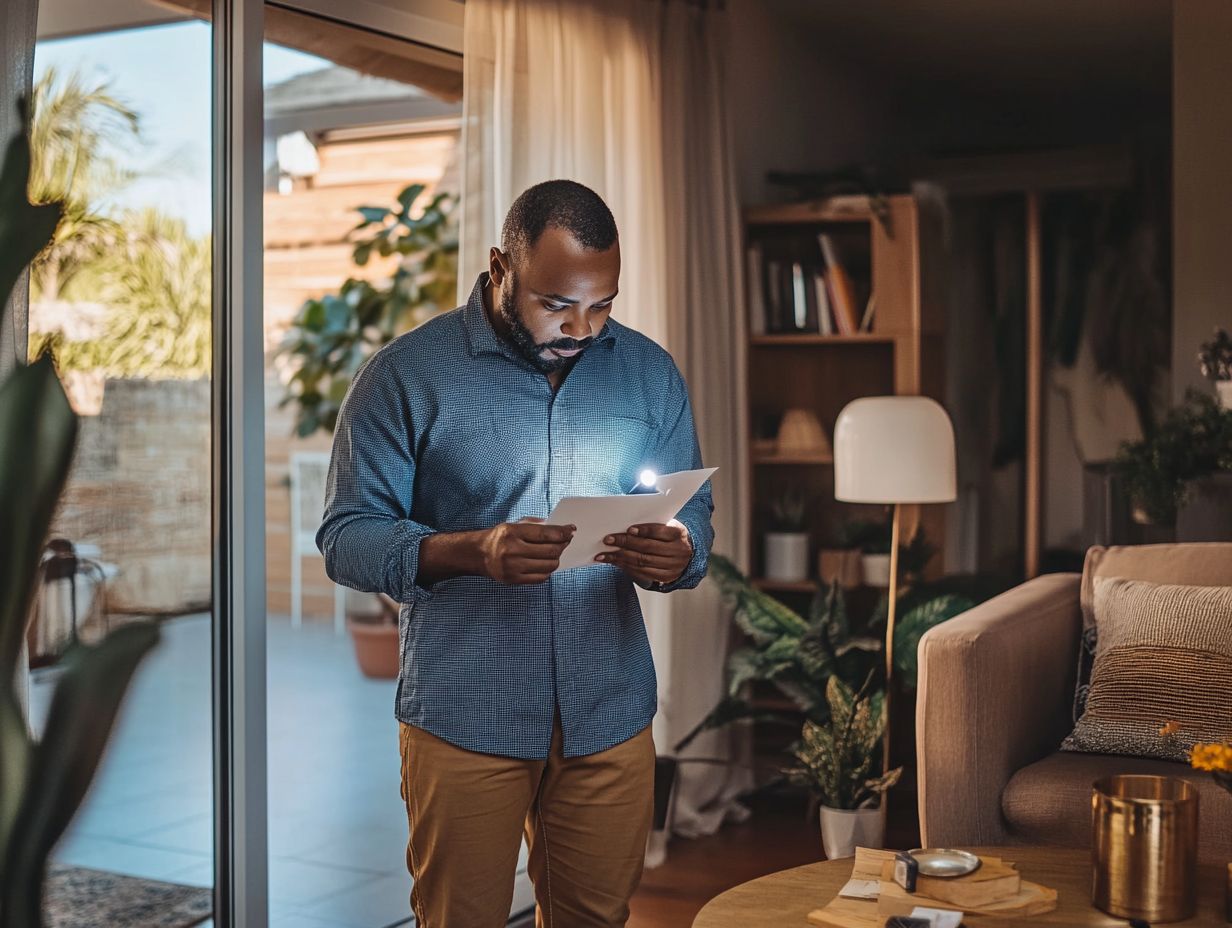
Understand the importance of a home inspection and its purpose in the buying/selling process.
Prepare for the inspection by taking necessary steps such as decluttering and being present during the inspection. For more guidance, check out these tips for a successful home inspection day.
Be aware of common areas inspected, both inside and outside the home, and navigate the home inspection process by addressing any potential issues or deficiencies before the inspection.
Know how to handle repairs and deficiencies found during the inspection by understanding what to expect with a home inspection to ensure a successful outcome.
Maximize the value of the inspection by using the report to negotiate repairs or adjustments in the sale price.
Understanding the Purpose of a Home Inspection
Understanding the purpose of a home inspection is essential in the real estate market. It plays an important role for both sellers and buyers, making the property s condition clear.
This comprehensive examination yields a detailed inspection report that outlines safety features and potential concerns. This enables sellers to ready their homes while guiding buyers in their decision-making journey.
What is a Home Inspection and Why is it Important?
A home inspection is an in-depth evaluation of a property’s condition, carried out by a certified inspector. This process is crucial for real estate transactions. It gives you and your agent a clear picture of any issues that exist.
This comprehensive assessment not only identifies potential repairs but also helps you create a detailed repairs checklist, influencing negotiations between you and the seller.
When you present documented concerns from the inspection report, sellers may be more willing to offer concessions or carry out necessary repairs before closing the deal.
By addressing issues upfront through a thorough inspection, you can greatly boost your property’s market readiness! Utilizing the essential checklist for home inspections makes homes incredibly appealing to prospective buyers and minimizes surprises during the closing process.
Preparing for the Inspection Process
Preparing for the home inspection process requires careful planning and organization on your part.
By ensuring that the property is market-ready and highlighting its best features, you can significantly influence the sale process in your favor.
What to Do Before the Inspector Arrives
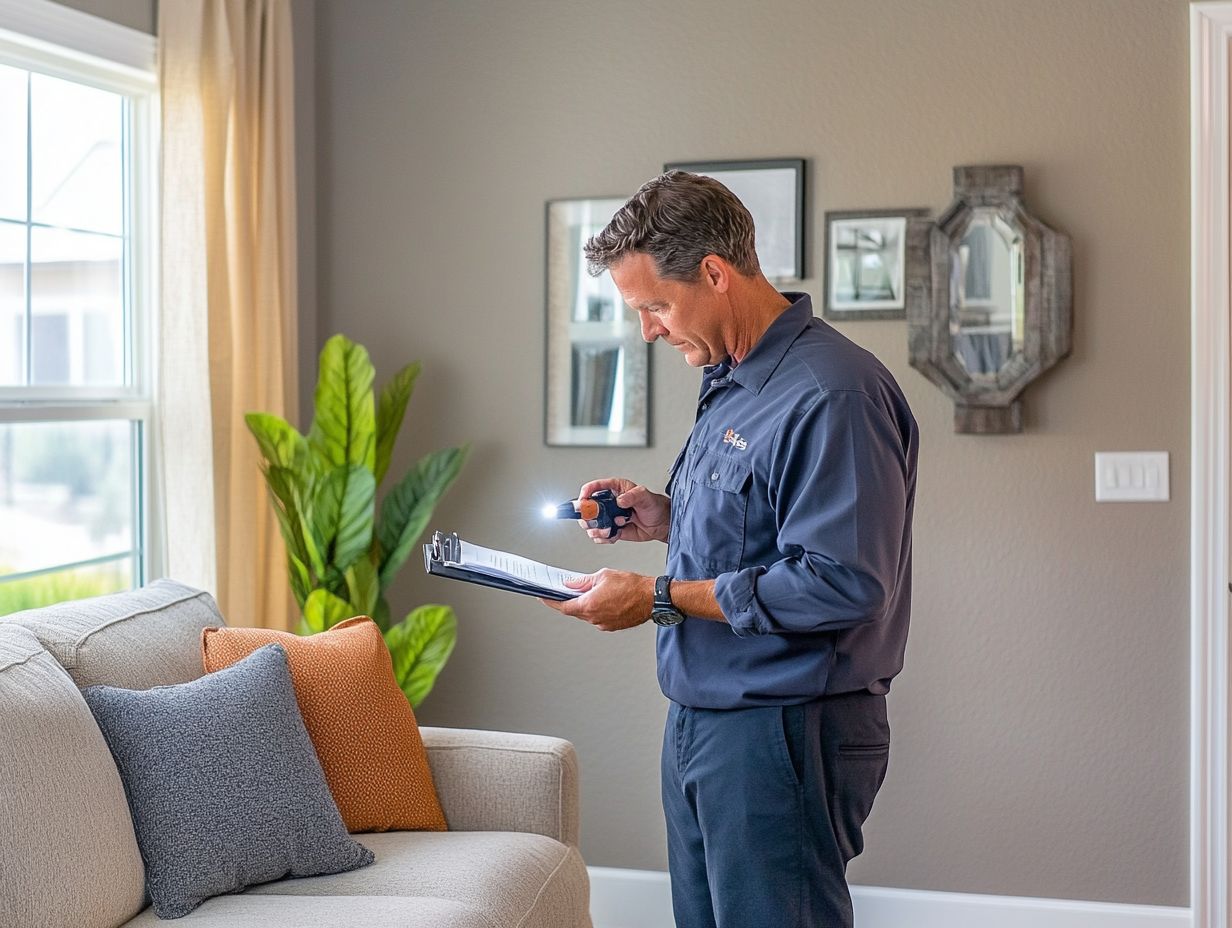
Before the home inspector arrives, it’s crucial for you to take specific steps to elevate your property’s appeal. Focus on cleaning, ensuring proper access to the home, and tackling any clutter that might detract from its positive attributes. Additionally, you can learn how to prepare for a successful home inspection to enhance your chances of a favorable evaluation.
Attention to detail can truly transform the experience; for example, deep cleaning the carpets and polishing the hardwood floors not only showcases your property’s potential but also establishes a welcoming atmosphere.
Make it a point to check the heating, ventilation, and air conditioning (HVAC) system and replace the filters. This guarantees a comfortable environment and signals to potential buyers that the home has been well-maintained.
Ensure that your plumbing is in optimal condition by fixing any leaks and checking water pressure this can help you avoid red flags during inspections.
Don t underestimate the importance of exterior maintenance. Mowing the lawn, trimming the hedges, and cleaning the gutters are simple yet effective strategies to boost curb appeal and leave a lasting impression.
Common Areas Inspected
During a home inspection, you ll find that several critical areas are meticulously examined, encompassing both the interior and exterior of the property.
This thorough evaluation ensures that essential systems such as HVAC, plumbing, foundation, and electrical meet safety standards and operate effectively.
Interior and Exterior Areas to Be Aware Of
As a homeowner, it’s essential to recognize that both the interior and exterior of your property will be scrutinized during a home inspection. Inspectors look closely at foundations and appliances. They also check for signs of water damage, all of which could hint at deeper issues. Knowing what to do after a home inspection can help you address any concerns effectively.
Identifying potential concerns in these critical areas can truly make or break a sale. A damaged foundation, for instance, can lead to hefty repair bills and long-term structural problems. Buyers often come equipped with a meticulous inspection checklist. They are ready to evaluate the property’s overall condition and won’t hesitate to raise red flags for any signs of disrepair.
Keeping your kitchen and home devices in good shape not only ensures energy efficiency and safety but also alleviates buyer concerns. Don t overlook the exterior; neglected roofs or siding can give an impression of overall neglect. This can significantly impact first impressions.
Therefore, paying attention to these areas can boost your appeal in the competitive real estate market.
Addressing Potential Issues
Acting quickly on this step can change your negotiation game. Addressing potential issues revealed during a home inspection is crucial in the selling process. This step significantly impacts the negotiation dynamics and the concessions you may need to extend to prospective buyers.
How to Handle Repairs and Deficiencies
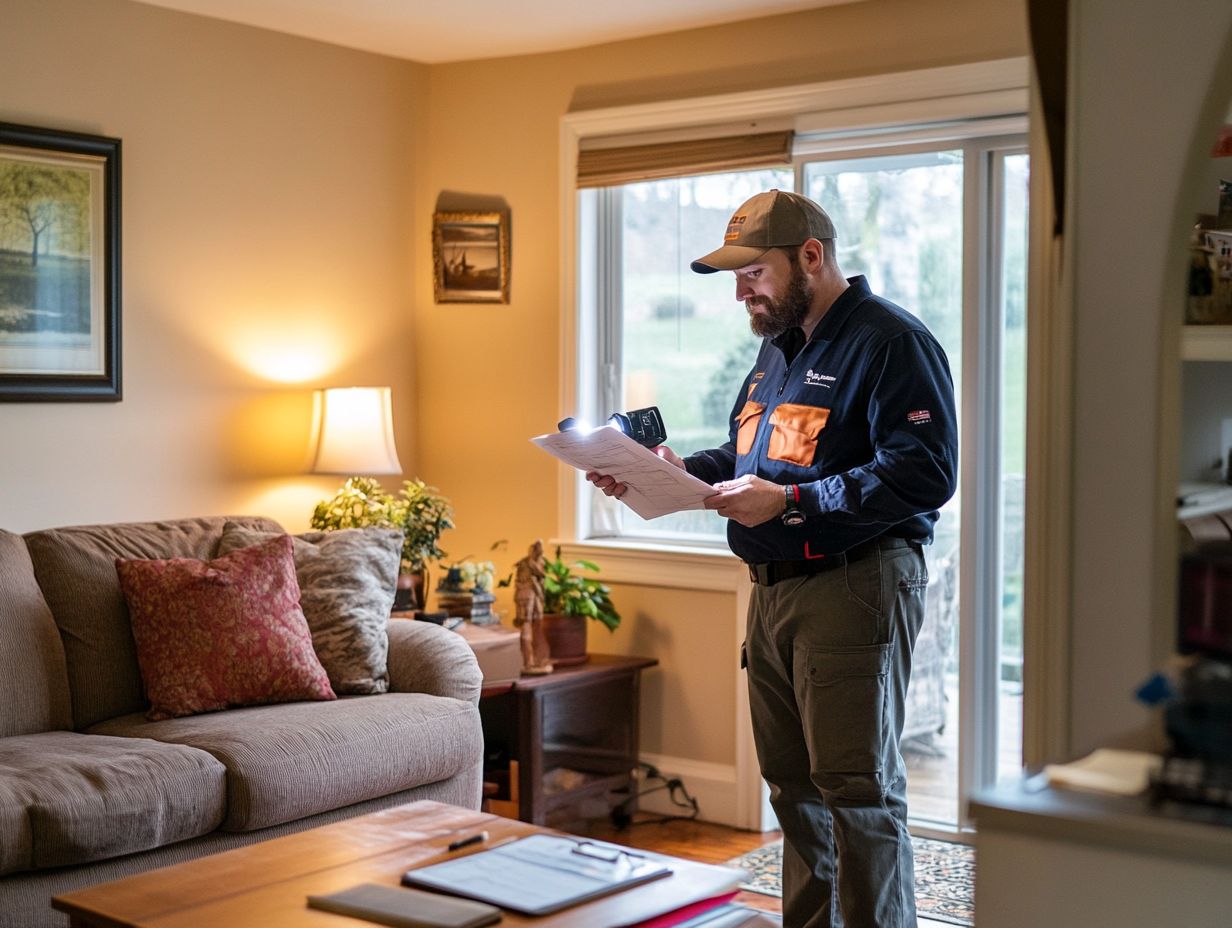
Handling repairs and deficiencies revealed in the inspection report calls for a thoughtful strategy. You’ll need to balance the necessary fixes with the realities of the negotiation process to ease any concerns potential buyers may have.
Effective communication with these buyers is essential. You may find yourself pondering whether to tackle issues head-on or to offer financial concessions instead. Transparency is paramount; openly discussing which repairs you’ll undertake or what discounts you might provide can build trust and create a more inviting negotiation atmosphere.
Consider how your choices affect your home’s value. By weighing the advantages of immediate repairs against the potential drawbacks of making concessions, you can navigate the process more smoothly and position your property to attract buyers.
Maximizing the Value of the Inspection
To truly maximize the value of a home inspection, leverage the inspection report to make informed, strategic decisions throughout the selling process, including understanding what to expect during a home inspection.
This approach not only enhances your property’s market value but also makes it significantly more appealing to potential buyers.
How to Use the Inspection Report to Your Advantage
To leverage the inspection report to your advantage, it s essential to grasp its implications fully and engage in transparent communication with potential buyers. This builds trust and paves the way for a smoother negotiation process.
By emphasizing the repairs you ve completed and showcasing warranties on critical systems, you can transform potential concerns into compelling selling points. Highlighting features like updated home access systems and enhanced safety measures will reassure buyers about the property s condition and longevity.
Crafting a narrative around the upkeep and improvements encourages open dialogue. This allows both parties to feel at ease discussing any necessary adjustments during negotiations and fosters confidence in the home s value while strengthening your position in the transaction.
Frequently Asked Questions
1. What is a home inspection and why is it important?
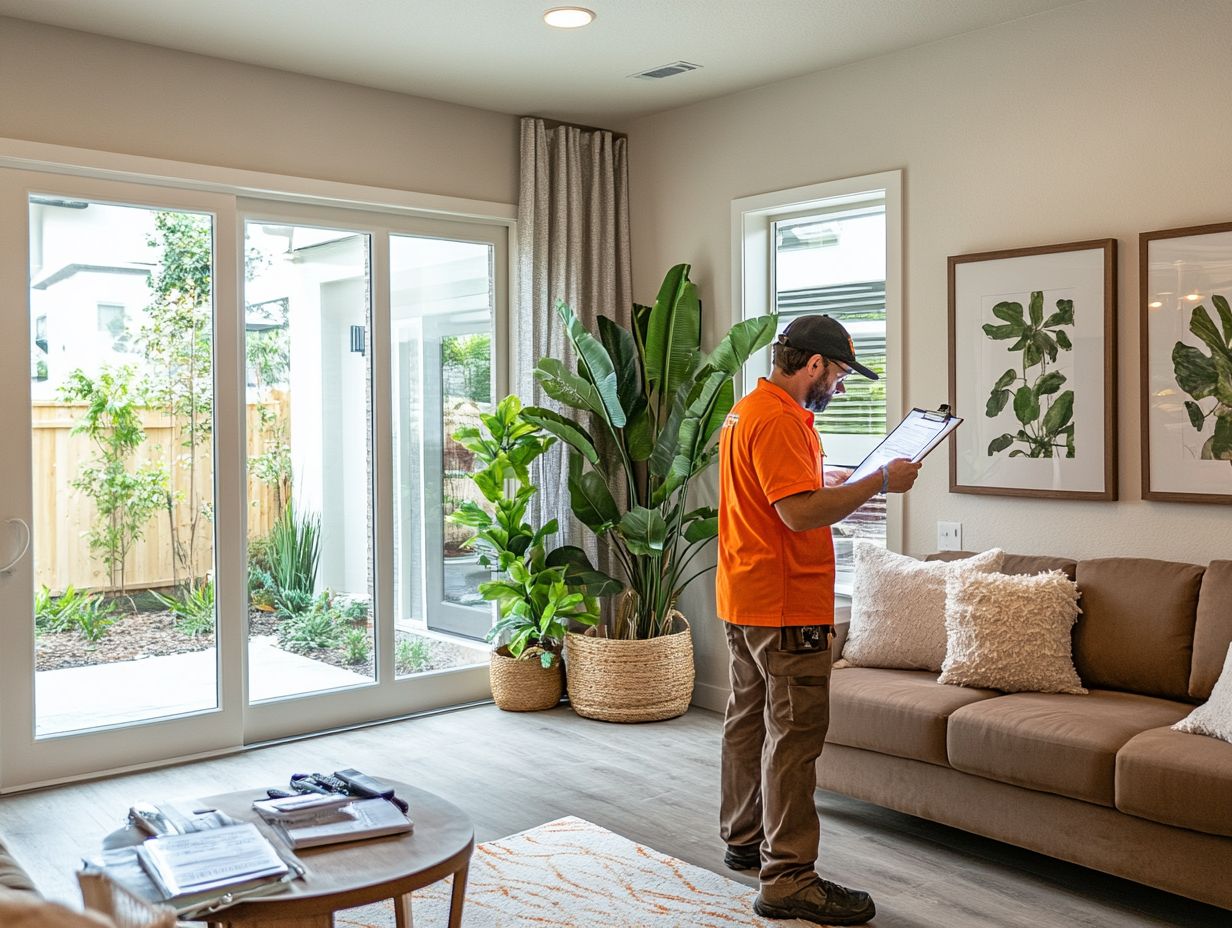
A home inspection checks a property’s condition, including its structure and systems. It’s crucial because it uncovers potential issues before buying.
2. When should I start preparing for a home inspection?
It is best to start preparing for a home inspection as soon as you decide to buy a home. This will give you enough time to address any potential issues and learn about what to expect during a home inspection to make necessary repairs.
3. What can I do to prepare my home for a successful inspection?
Start by cleaning your home and removing clutter. Check for visible issues like leaky faucets, electrical problems, or cracks in the walls.
Have all important papers related to your home’s maintenance ready for the inspector.
4. Should I be present during the home inspection?
Being present during the home inspection isn’t required, but it s a good idea. This way, you can ask questions and address any concerns right away.
5. Can I do my own home inspection?
You can do your own inspection, but it s not recommended. A professional knows what to look for and can spot issues you might miss.
6. What happens if the home inspection reveals major issues?
If major issues are found, you have options. You can negotiate with the seller for repairs or a lower price, or decide to walk away if the problems are too big.




